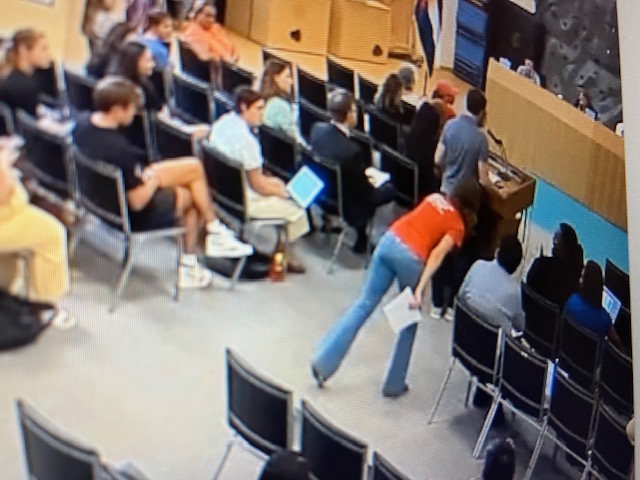A Denver school board resolution that could have effectively gutted the plans that drive innovation schools has been shelved until later this year, after an outcry from some principals and community members prompted the board sponsor to reopen a dialogue on the issue.
Brad Laurvick, elected last November to represent northwest Denver, who introduced the resolution earlier this year, “has a strong interest in re-launching the discussion in a way that better centralizes all three constituent groups who are directly involved in innovation planning and voting (administrators, teachers and DCTA-covered staff, and families via (Collaborative School Committees),” Jennifer Holladay, Denver Public Schools associate chief of portfolio wrote in an April 24 email to innovation school principals.
Laurvick, who received strong financial and logistical backing from teachers associations during his campaign, floated the resolution because he wanted to change how schools voted to approve innovation plans. Since the state’s Innovation Schools Act took effect in 2008, plans have had to receive 60 percent support from school staffs and governing councils during separate votes. But the plans were voted on in their totality.
Laurvick, at the urging of the Denver Classroom Teachers Association, proposed a change that would require separate votes for each waiver from collective bargaining agreements and district regulations. Some union leaders had long been unhappy that some waivers allowed innovation schools to work around clauses in agreements focused on working conditions, including hours worked, length of contracts, and processes for dismissing teachers.
During a board work session March 5 –shortly before the Covid-19 crisis upended the board’s business — Laurvick said he was putting forth the proposed changes because he was mindful of workers’ rights and because teachers were the only parties to the plans required to give something up through waivers.
“They’re letting go of a right. It has been negotiated. It is in their contract,” Laurvick said. “And if they are going to (give up a right), and some of them may choose to, it should be with a very clear sense of space and a very clear granting of yes, this is my choice.”
Principals who took exception to the resolution said it provides a backdoor way for people opposed to innovation schools — primarily teachers union leaders — to bring those schools back into the fold, by allowing what had been an internal process to be exposed to the political machinations of outside interest groups.
Some innovation principals have had recent first-hand experience of DCTA representatives stirring up discord during innovation votes. They said they feared this would grow far worse if individual waivers became fair game.
Allowing votes on individual waivers would also weaken plans, developed organically through a collaborative process, by potentially removing integral components. Here’s how Blake Hammond, principal at Green Valley Elementary, an innovation school, described the issue:
“When a community goes through a painstaking, time-intensive collaborative process to construct a plan, if a small number of dissidents are able to cherry-pick away the things they don’t like, the power of the plan goes out the window. I understand that some educators don’t like waiving rights they won in collective bargaining. But what’s most important is the collaboration between all stakeholders including staff, students, and the community to ensure that everyone has a clear alignment with the mission and vision of the path forward, all in the interest of student achievement.”
During the March 5 conversation about the proposed resolution, at-large school board member Barbara O’Brien said the resolution seemed adult rather than child focused.
“I totally understand the issue of worker rights, but I am also looking forward to when we also include the rights of students to have schools that are quickly adaptive to their needs and we don’t waste half a school year or a full school year trying to figure out a way to educate kids who are behind,” O’Brien said.




